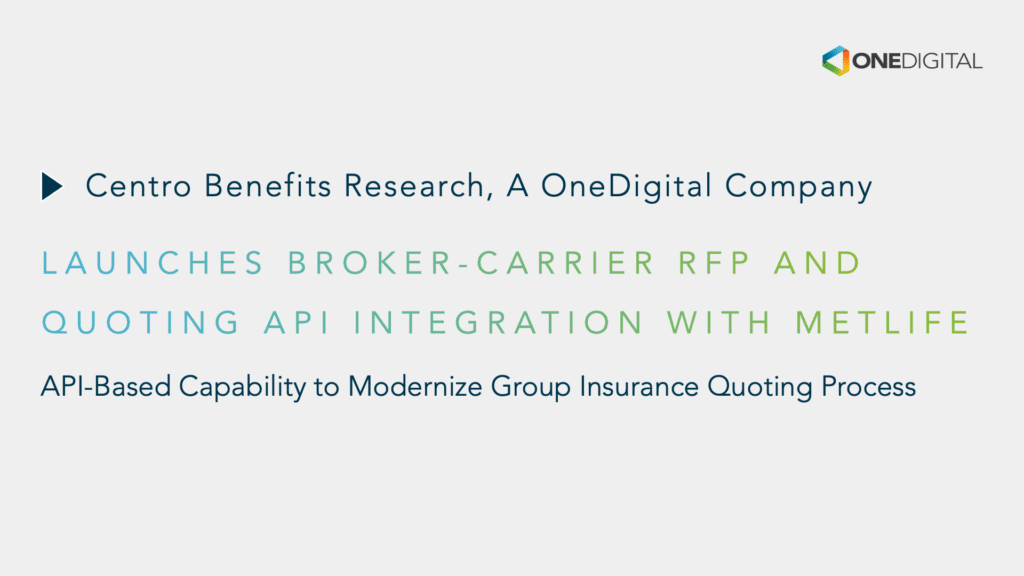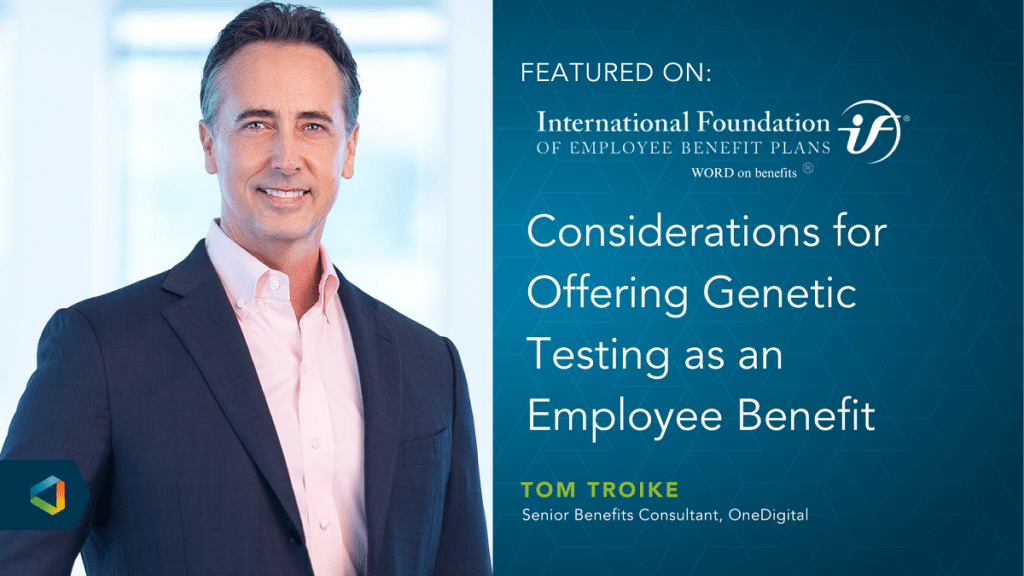Better Benefits, Lower Costs
What is an Employee Benefits Broker and What Do They do?
What is an Employee Benefits Broker and What Do They do?
In looking at organizational spending, employee benefits is typically the second-highest cost behind employee payroll, but many employers don’t understand what an employee benefits broker is and what they are responsible for.
In this blog, we’ll tackle what an employee benefits broker is, what support they provide and why employers need one.
What is an Employee Benefits Broker?
Simply put, an employee benefits broker – also referred to as a benefits broker or an employee benefits consultant – is a professional who helps businesses find and manage employee benefits packages.
Employee benefit packages are what companies offer to their employees beyond their salary for benefits – think health insurance, dental or vision coverage, PTO, retirement plans (401k for example), voluntary benefits like life insurance as well as fun perks like gym memberships and pet insurance. The goal of a robust employee benefits package is to attract and retain talent while supporting the wellbeing and financial security of their workforce.
Essentially, the number one responsibility of an employee benefits broker is to act as intermediaries between the insurance companies (often known as carriers) and your organization to help secure the best package options that meets the needs of the company and their employees.
While you could say the main job of an employee benefits broker is to manage and implement a successful and attractive employee benefits package, their support doesn’t end after you finish your healthcare renewal every year. In fact, a broker is a year-long partner who is constantly providing value – whether it’s by providing educational material to keep employees in-the-know before and after open enrollment or by sharing new cost containment strategies to stay ahead of the eight ball.
What support do Employee Benefits Brokers provide?
An employee benefits broker is responsible for assisting businesses in selecting, implementing and managing an employee benefits program effectively and efficiently. While every company requires unique needs, the general overall services can typically be broken into 6 main buckets:
1. Plan Design, Strategy, and Cost Containment
An employee benefits broker works to better understand your cost drivers and help you explore multi-year benefit strategies to control and optimize every dollar spent, without cutting benefits or shifting costs to employees.
2. Reporting and Analytics
Harnessing the power of data to ensure your strategy and investments not only support business growth but also allow you to foster an exceptional workplace.
3. Service and Support
Your benefits broker plays a crucial role in day-to-day support, including answering questions you and your employees have, ensuring you have the right resources, and keeping tasks moving forward.
4. State and Federal Compliance Support
The amount of information employers need to know is growing more burdensome by the minute. Your benefits broker stands by your side to deliver deep legal expertise and a forward-thinking strategy, providing the guidance and compliance peace of mind you need to protect your business and employees every day.
5. Employee Communication, Education and Engagement
From open enrollment to year-round communications, your benefits broker partners with your team to create engaging educational materials around the benefit programs you provide.
6. Benefits Administration Software
In a competitive marketplace, staying ahead requires more than just adopting the latest tools – it demands a strategic approach that challenges the traditional ways of managing HR processes. Your benefit broker helps you identify and implement the right HR system for your needs.
Why does a company need an Employee Benefits Broker?
There are several reasons as to why a company should partner with an employee benefits broker to oversee their benefit programs.
For starters, brokers have expertise in navigating the complex landscape of insurance and benefits, which can be a massive undertaking for an employee at a company to manage along with their other responsibilities. They typically have strong relationships with various insurance companies. In fact, most insurance companies will only work through a benefits broker.
Next, they can save businesses and HR professionals significant amount of time by handling the research, negotiations and paperwork involved in selecting different plan designs and managing the overall employee benefits program. Many times, brokers have actuaries and market analysts in-house who can run analyses to help you make the best decision for your company.
Additionally, brokers stay updated on industry trends and regulations, ensuring businesses stay compliant and provide peace of mind.
When does a company not need an Employee Benefits Broker?
Companies that do not leverage an employee benefits broker are typically very large, with tens of thousands of employees, that have hired former benefits consultants in-house. These large employers may oversee the program in-house but they’ll likely outsource particular specialty functions such as actuarial services, pharmaceutical consulting, and ERISA guidance.
Smaller and mid-sized organizations may have other niche scenarios where they don’t use a benefits broker (e.g. they purchase benefits through an association plan, their direct to a carrier, or they’re in a PEO ), but these are less common scenarios.
All employers need some level of guidance when it comes to navigating the ever-complex world of employee benefits. Employers benefit when they partner with a benefits broker, much like relying on a trusted mechanic for car maintenance. Maybe you add your own washer fluid or even change your own brake pads in your car, but do you also handle the software update? Brokers fine-tune the intricate components of benefit packages, ensuring smooth operation, cost efficiencies and addressing potential issues before they become major problems.




